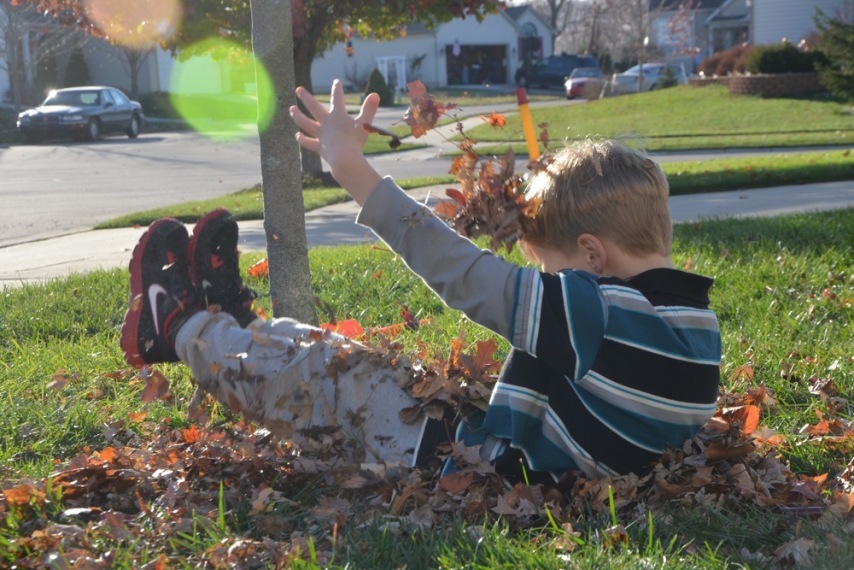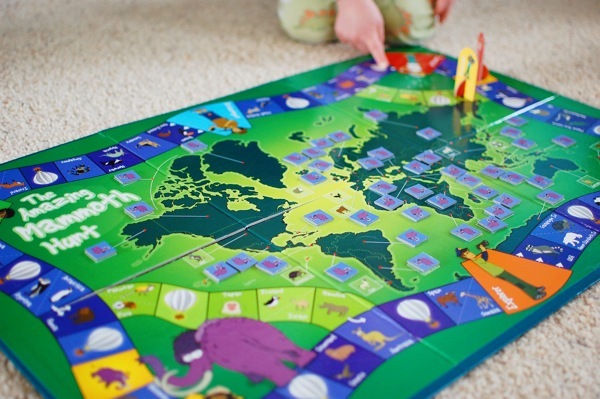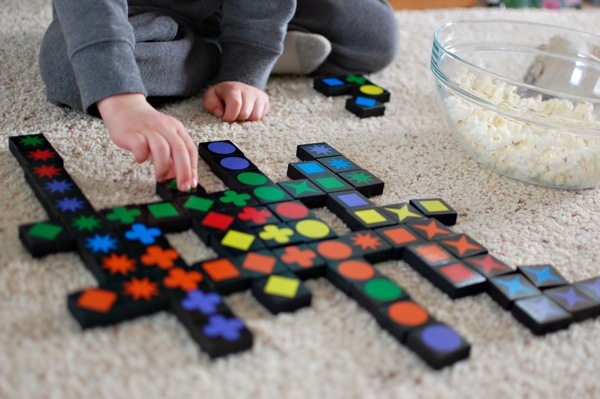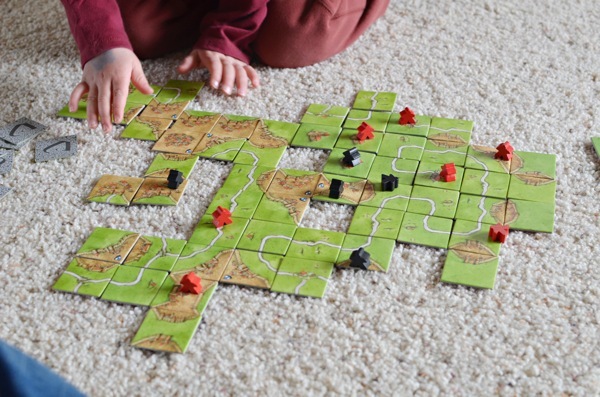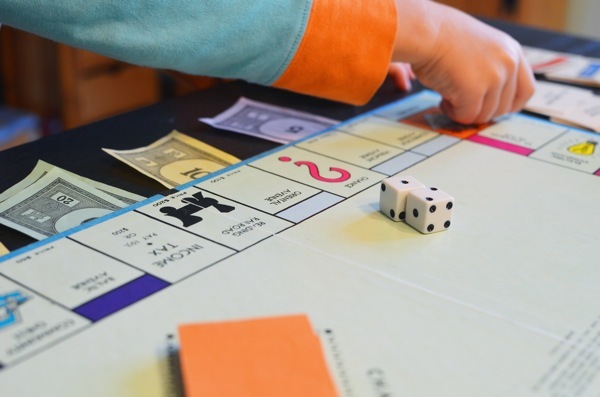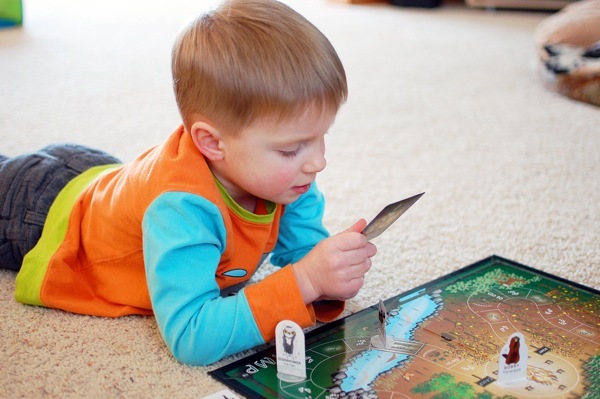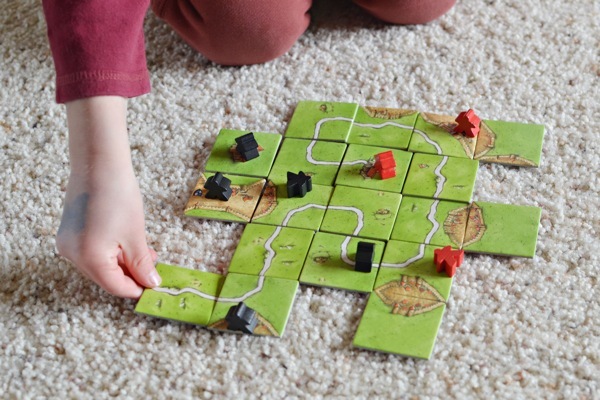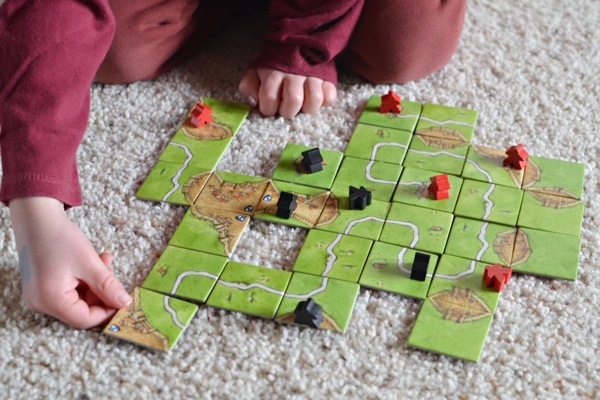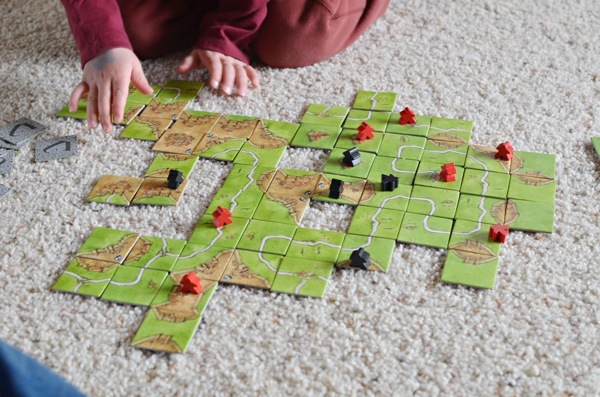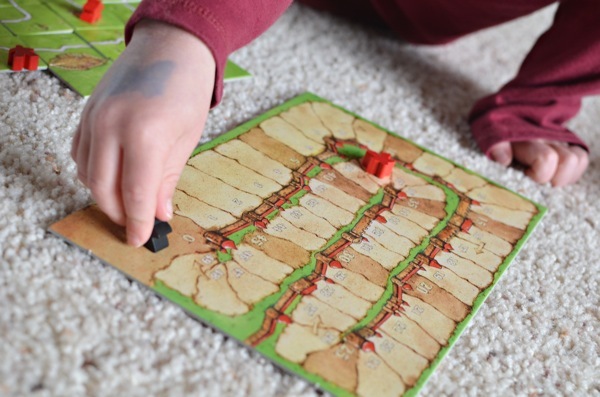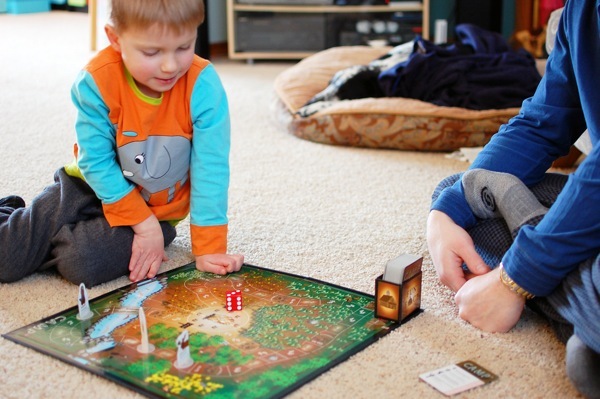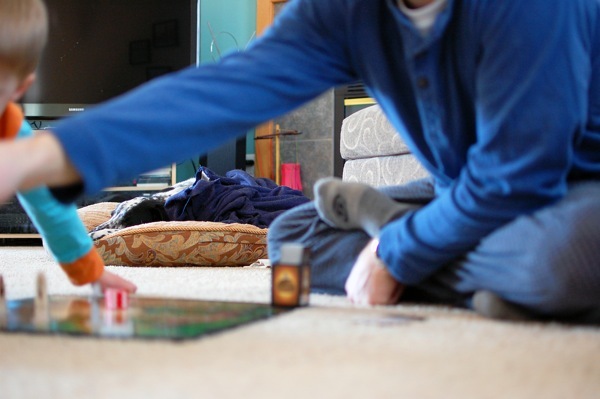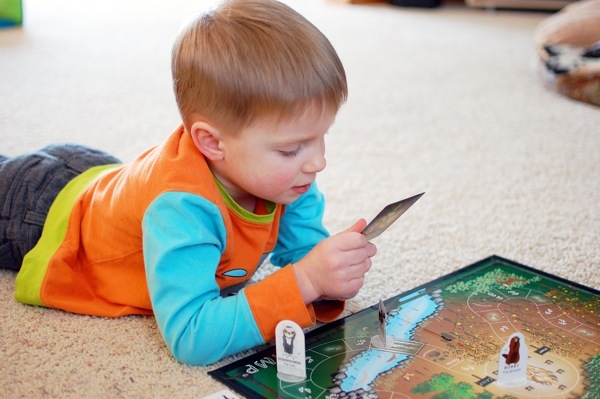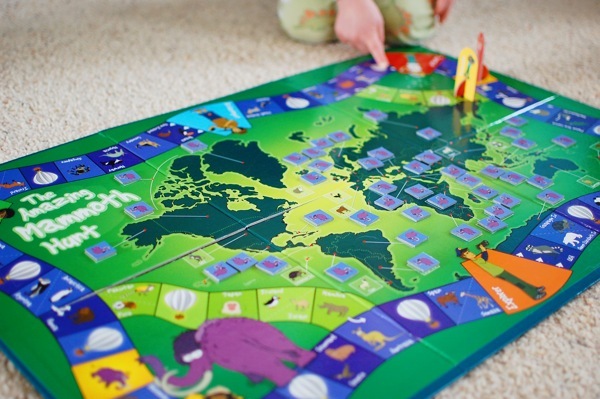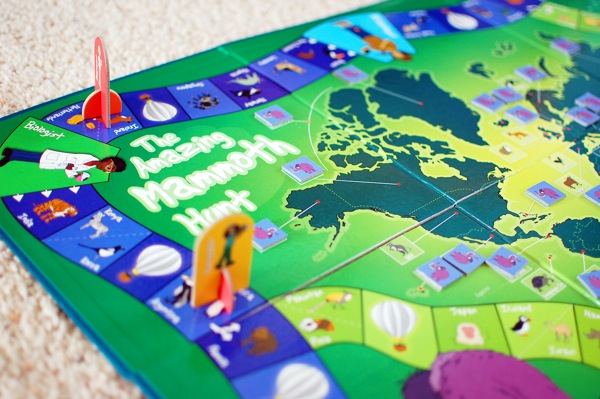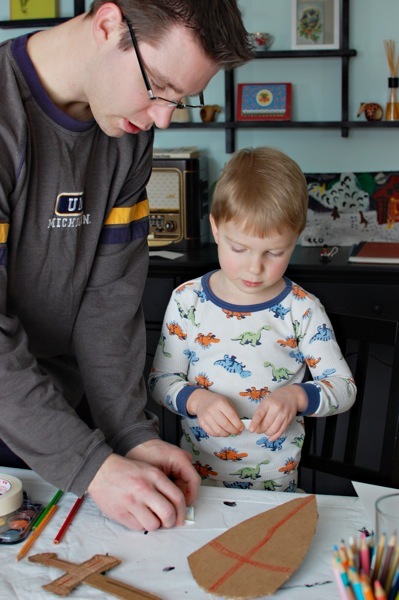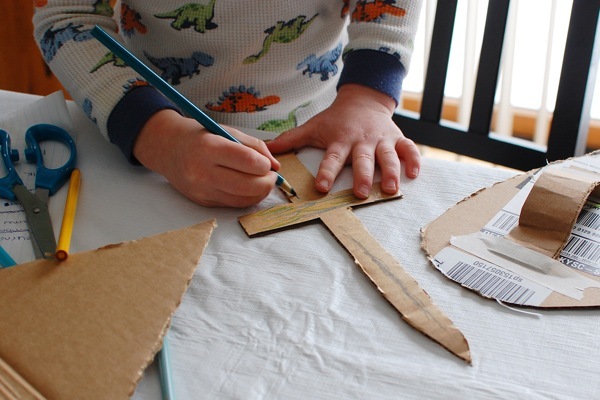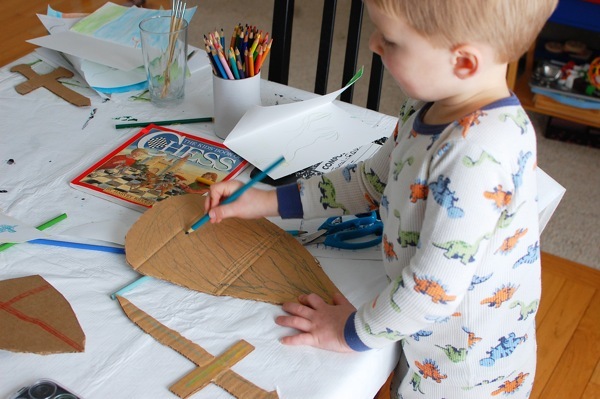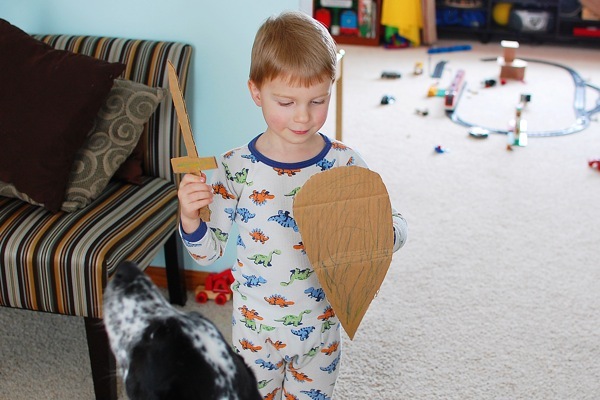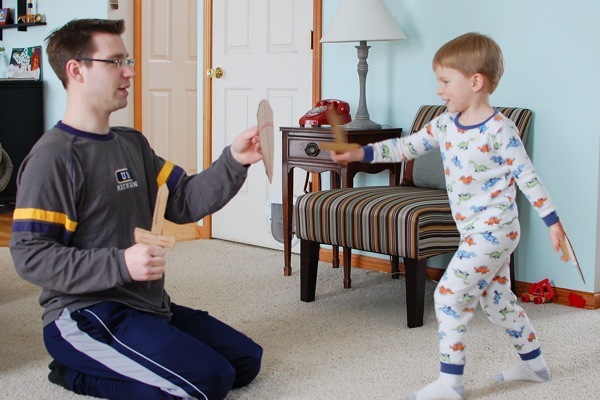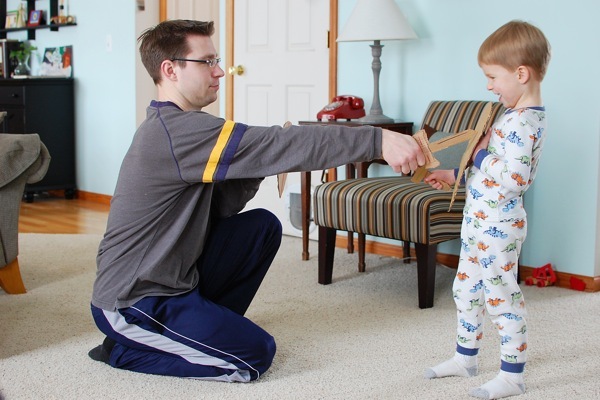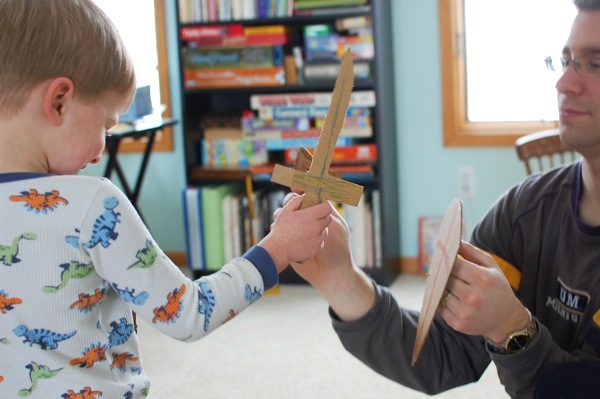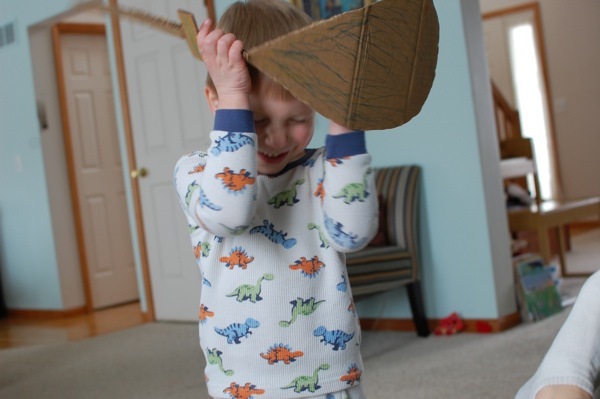Learning tools: Games
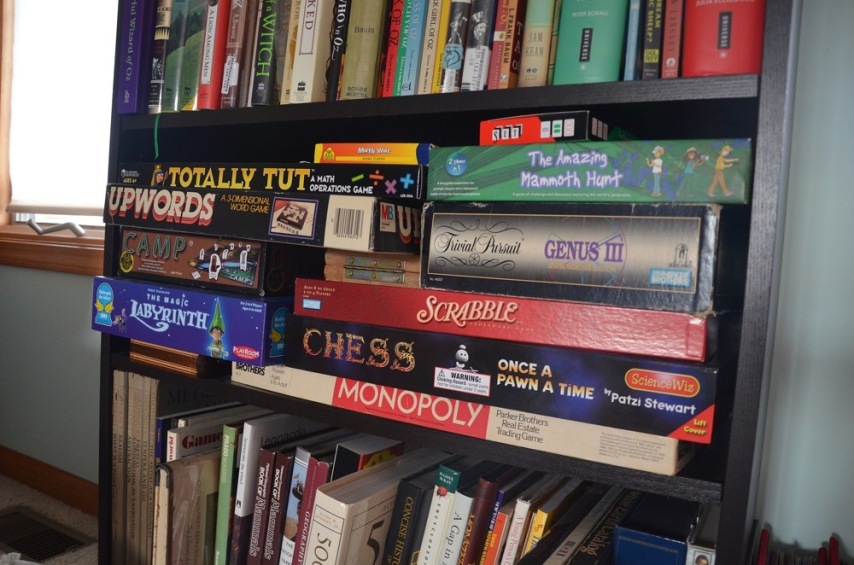
The games we play:
The Amazing Mammoth Hunt (Mindware, review)
Camp (Education Outdoors, review)
Carcassonne and expansions (Rio Grande Games, review)
Chess (Science Wiz, Once Upon a Pawn a time)
Dominoes
The Magic Labyrinth (Playroom Entertainment)
Mancala (example set)
Math War (School Zone, but this could be played with any deck of cards)
Monopoly (Hasbro, post)
Pattern Play (Mindware)
Professor Noggin's Ancient Civilizations Card Game (Prof. Noggin)
Professor Noggin's Prehistoric Mammals Card Game (Prof. Noggin)
Shut the Box (we have the Melissa and Doug version)
Set (SET Enterprises)
Tangrams (our set is a book by Chris Crawford)
Totally Tut (Learning Resources)
Upwords (Hasbro)
Qwirkle (Mindware, review)
I've never been a huge fan of games, which is unfortunate because I know they are such a great learning tool, and afun way to spend extra time. It's not that I have anything against games themselves (most games, that is), it's just that I personally do not enjoy playing them. There are a a few I've always loved—Trivial Pursuit, Boggle, and Scrabble, to be exact—but the rest I find tedious, especially games of chance.
Over the past couple of years, though, I've learned to enjoy a game or two a day. We usually play during lunch, or late, as the day and our energy is waning. Currently we play very few of our games competitively. Dominoes, Set, Totally Tut, Upwords, and the Professor Noggin games we play cooperatively. The Amazing Mammoth Hunt we play as individuals, but we don't tally at the end. Shut the Box is made for individual play, though we help each other along. Pattern Play and Tangrams are individual games that we often do together. Only with Camp, Carcassone, Chess, The Magic Labyrinth, and Monopoly do we actually tally scores, but even with these we help each other out. The goal to me with these games is to have a good time while learning a bit in the process, be it about math, geography, good manners, or how to think in and around the rules.
I've reviewed a couple of our games on the site, so I linked those comments in the list above. (As a side note, I have recieved no compensation for reviews of these products, nor even been asked to write about them.)
Mancala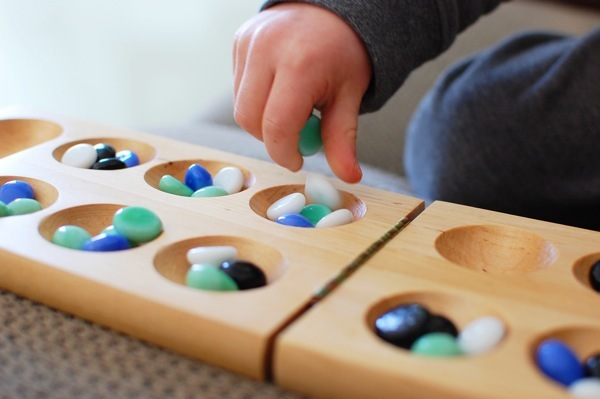
Chess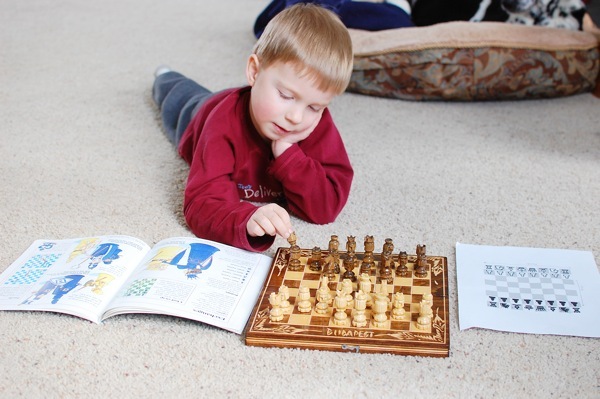
Stop by OLM (to whom we owe big thanks for many of our own game ideas) to see some great lists of games linked up.
 Games
Games 




